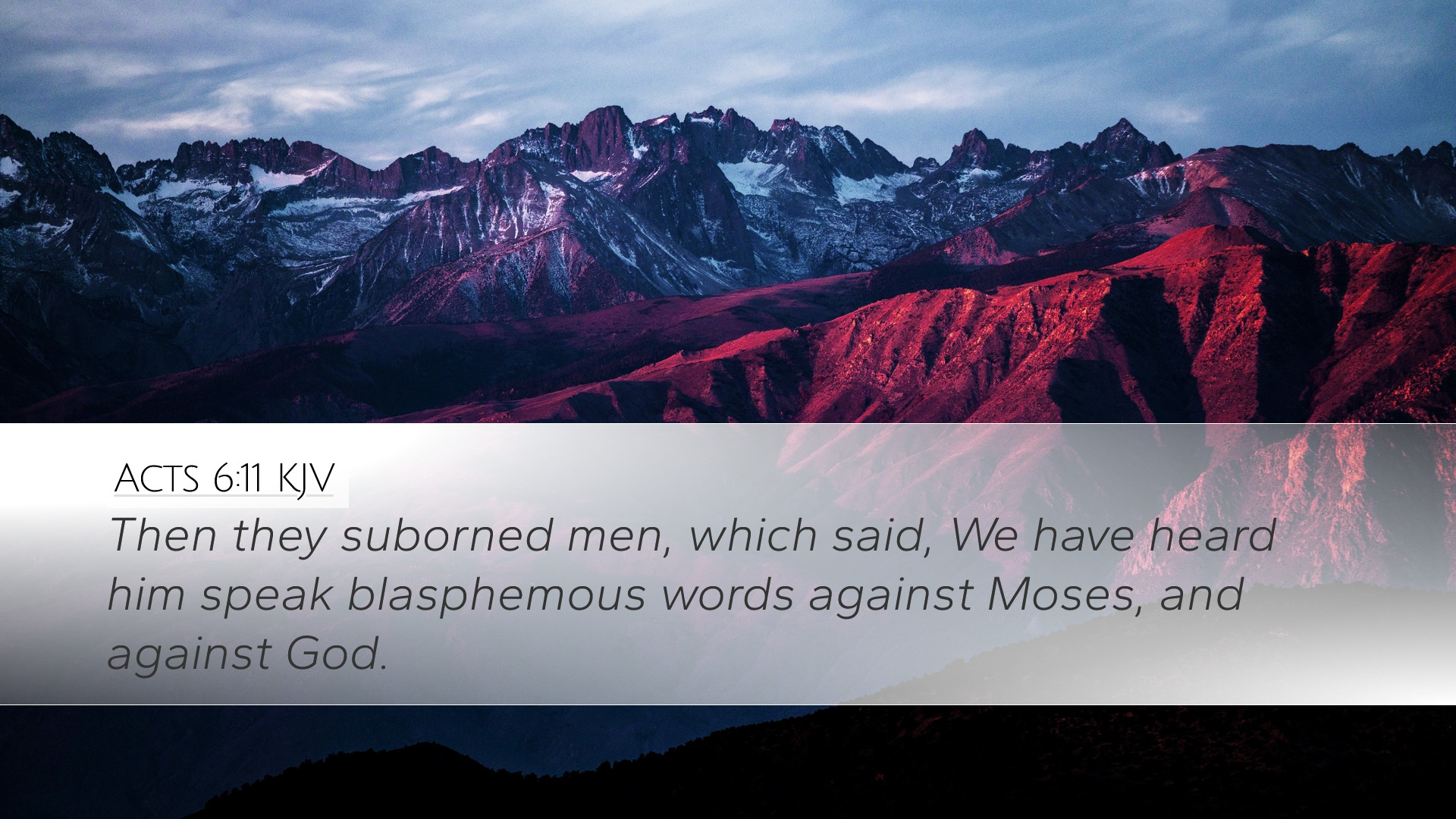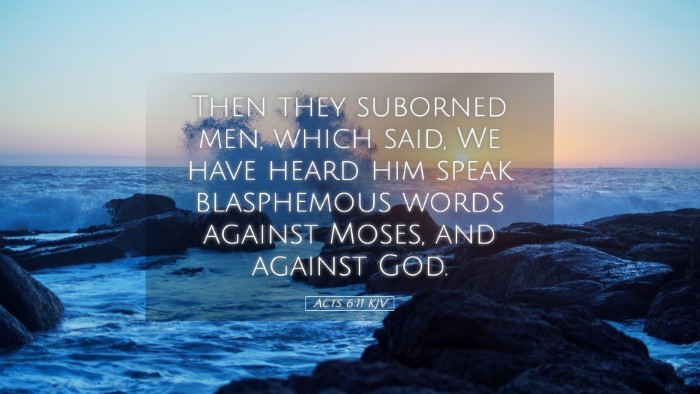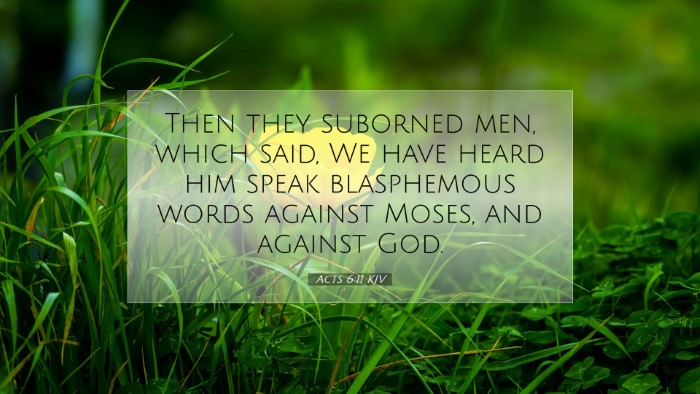Old Testament
Genesis Exodus Leviticus Numbers Deuteronomy Joshua Judges Ruth 1 Samuel 2 Samuel 1 Kings 2 Kings 1 Chronicles 2 Chronicles Ezra Nehemiah Esther Job Psalms Proverbs Ecclesiastes Song of Solomon Isaiah Jeremiah Lamentations Ezekiel Daniel Hosea Joel Amos Obadiah Jonah Micah Nahum Habakkuk Zephaniah Haggai Zechariah MalachiActs 6:11
Acts 6:11 KJV
Then they suborned men, which said, We have heard him speak blasphemous words against Moses, and against God.
Acts 6:11 Bible Commentary
Commentary on Acts 6:11
Acts 6:11 states: "Then they secretly induced men to say, 'We have heard him speak blasphemous words against Moses and God.'" This verse marks a critical moment in the narrative of the early church, showcasing the opposition faced by Stephen, one of the seven deacons appointed to serve in the burgeoning Christian community.
Contextual Background
The early chapters of Acts highlight the rapid growth of the Christian church and the accompanying challenges. Stephen, described as a man full of faith and the Holy Spirit, had been performing great wonders and signs among the people (Acts 6:8). The selection of deacons, including Stephen and Philip, was a response to the logistical need to care for widows and the community, as noted in Acts 6:1-7. However, this growth also attracted hostility from the established religious authority, laying the groundwork for conflict.
Analysis of the Accusation
The enemies of Stephen resorted to deceitful tactics by soliciting false testimony against him. This reflects a calculated strategy to undermine his influence and discredit his ministry, paralleling the methods used against Jesus.
- Deception as a Tool: Albert Barnes points out that the adversaries of truth often employ falsehood as a means of attack. This act of inducing men to lie illustrates the moral decline of the opposition, revealing their desperation to suppress the burgeoning movement of Christians.
- The Nature of the Blasphemy Charges: Matthew Henry indicates that the accusation against Stephen was grounded in his alleged attacks on both Moses and God. This duality in accusations sought to pit Stephen against the foundational leaders of Judaism, challenging the core religious beliefs of the Jewish society.
- Fear of Change: Adam Clarke notes that Stephen’s progressive teachings, which emphasized the fulfillment of the law in Christ, threatened the status quo of the temple-based worship and Jewish traditions. The resistance he faced can be interpreted as a defensive reaction to a shifting religious landscape.
Theological Implications
This incident opens a window into the early Christian community's conflicts, highlighting several key theological points:
- The Nature of Witness: Stephen’s role exemplifies the essence of Christian witness, which can invoke strong reactions from a world resistant to change. His courage to speak in the face of opposition remains a model for modern believers.
- Persecution as a Catalyst: The false accusations against Stephen foreshadow the greater persecution that the church would endure. This theme resonates throughout Acts, where the faithfulness of believers under duress leads to the spread of the Gospel.
- Divine Sovereignty: While the actions of the religious leaders seek to eliminate Stephen, this moment reaffirms God’s control over the narrative. Stephen's martyrdom ultimately serves to propel the mission of the church forward, illustrating that even in suffering there is purpose.
Practical Applications
For pastors, students, theologians, and scholars today, Acts 6:11 provides valuable lessons:
- Faithfulness in Adversity: Following Stephen's example encourages Christians to remain steadfast in the faith, irrespective of external pressures or accusations.
- Understanding Blasphemy and Defamation: This event prompts deeper reflection on the seriousness of bearing false witness. It challenges believers to seek honesty and integrity in their own judgments and writings about others.
- Engaging with Opposition: The confrontation Stephen faced teaches the importance of engaging with criticism thoughtfully and biblically. Believers are called to respond to opposition with grace while also upholding the truth.
Conclusion
Acts 6:11 succinctly encapsulates a pivotal moment of conflict in the early church, driven by deceit and the threat of the Gospel. The commentary from various public domain scholars underscores the profound implications of this verse, providing insight that resonates across time for those involved in ministry, study, and theological reflection. The lessons learned from Stephen's experience serve as a powerful reminder of the call to witness truthfully, endure persecution, and maintain an unwavering commitment to the transformational message of Christ.


